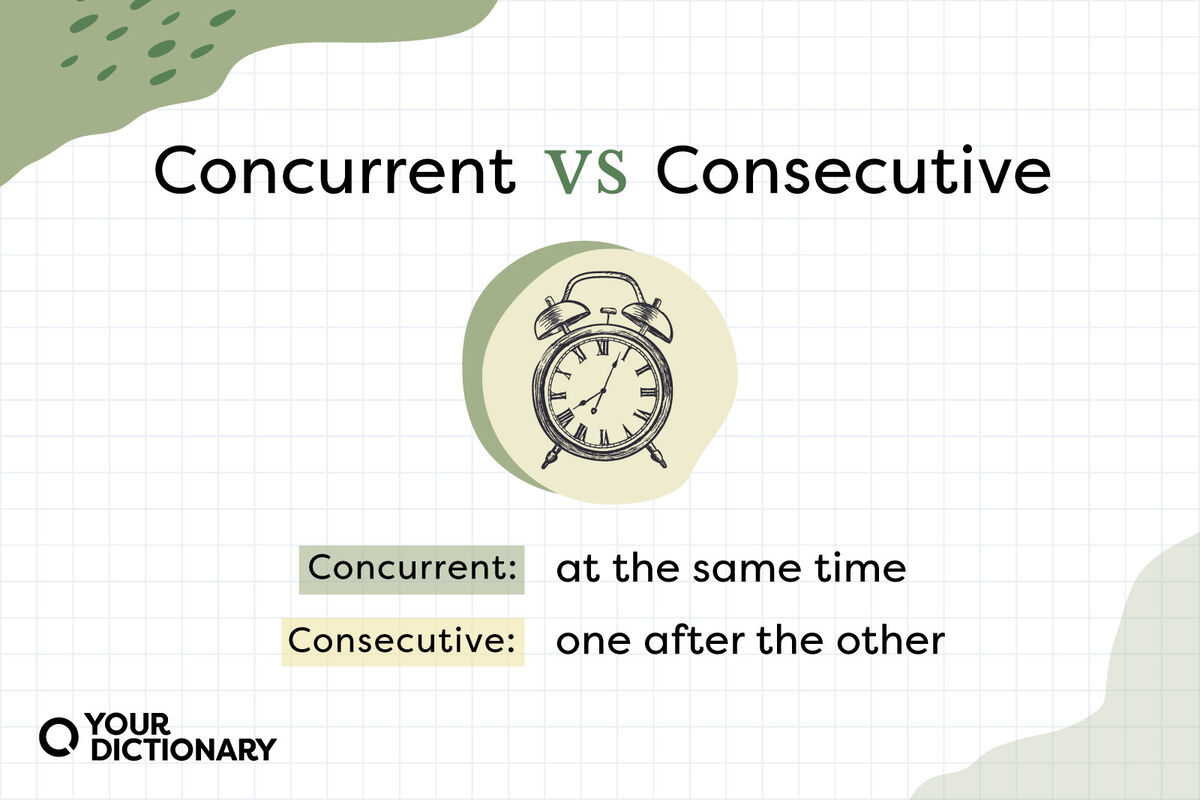
If you’ve committed two crimes and the judge gives you the choice of serving your sentences concurrently or consecutively, which would you choose? (The judicial system is very generous in this imaginary universe.) Hopefully you know the difference between these two time-related words, because otherwise you may be in for some serious time in the Big House.
Concurrent: At the Same Time
The adjective concurrent means “at the same time.” It comes from the Latin word concurrentem, which means “running together,” and is often interchangeable with simultaneous. Someone facing multiple sentences for multiple crimes would definitely rather have concurrent sentences, which are served at the same time. In math vocabulary, concurrent means “meeting at one point.”
Using ‘Concurrent’ in a Sentence
It’s easy to use concurrent (or the adverb concurrently) in a sentence if you know its meaning. For example:
- Payment must be concurrent with a sale, or the store won’t complete your purchase.
- Everyone was speaking concurrently, and I couldn’t understand what they were saying.
- All three Spanish classes are scheduled concurrently, so you can only take one at a time.
Other Words With the Root ‘Cur’
You may have spotted the root word -cur meaning “run” or “happen” in concurrent. It comes from the Latin currere (“to run”), as does:
- course - a route or road
- currency - a medium of exchange (the flow of money)
- curriculum - a course of study
- cursor - a (computerized) runner
- occur - to happen
- recur - to happen again
Consecutive: One After the Other
If your criminal alter ego chose consecutive sentences, on the other hand, you’d serve twice as much time. Consecutive means “one after the other” and comes from the Latin consecutivus (“to follow”). Serving two 10-year sentences would result in a total jail time of 20 years, whereas serving them concurrently would only result in 10 years behind bars.
Using ‘Consecutive’ in a Sentence
You can use consecutive and the adverb form, consecutively, like this:
- After three consecutive F’s in History, Tina decided that she’d better start studying.
- Our team has worked through four consecutive weekends to get this project done.
- Be careful after an earthquake; consecutive aftershocks can take you by surprise.
Other Words With the Root ‘Seq’
Unlike the root word -cur, the root -sec (or sometimes -sequ) means “after,” as in:
- consequence - the result that follows an action
- second - follows the first in a series
- sequel - follows the first movie or book series
- sequence - items that follow each other
- sequential - in a series
- subsequent - following
Learn Vocabulary and Feel Smarter Concurrently
Are there more word pairs that confuse you from time to time? Check out: